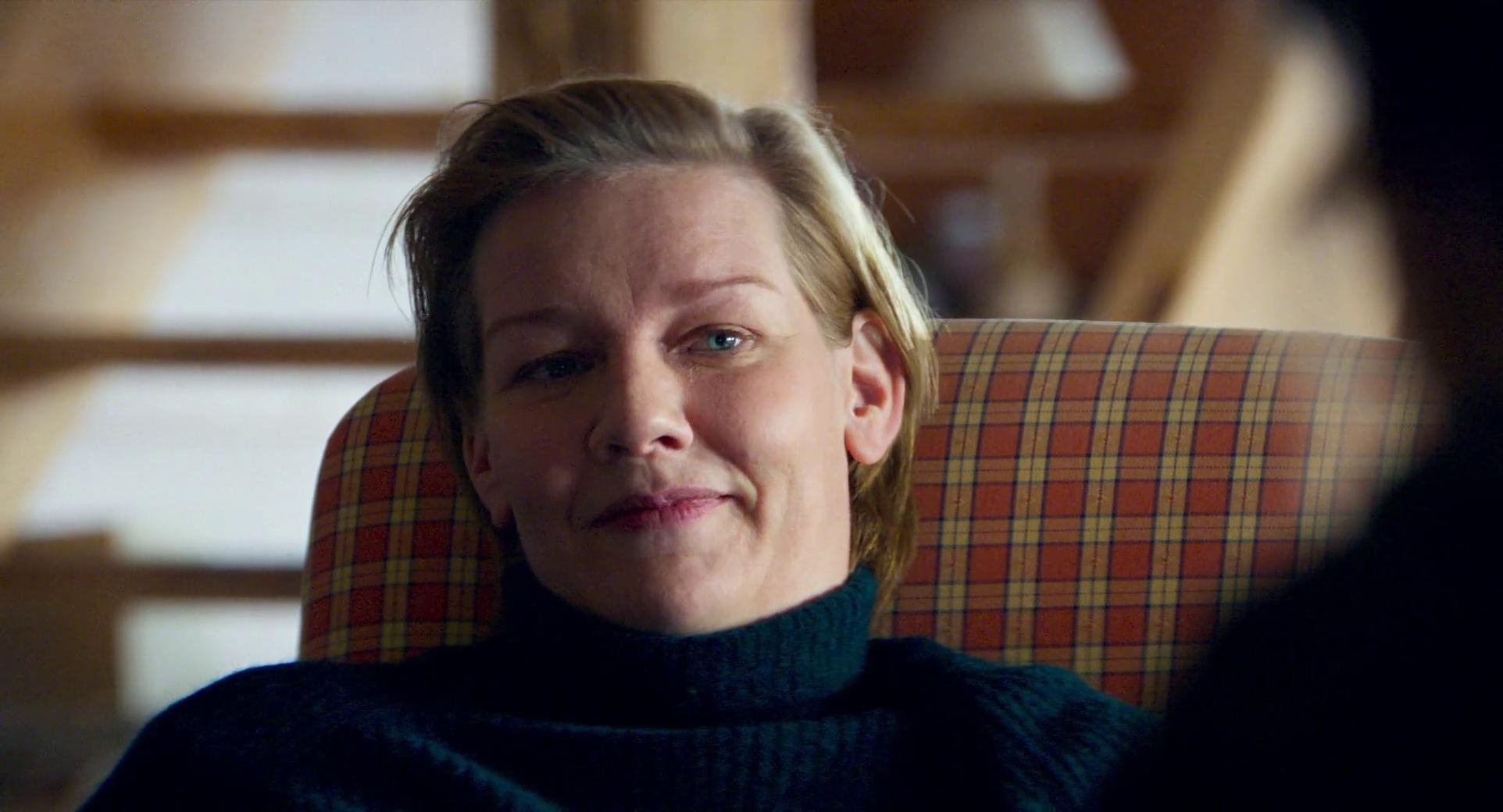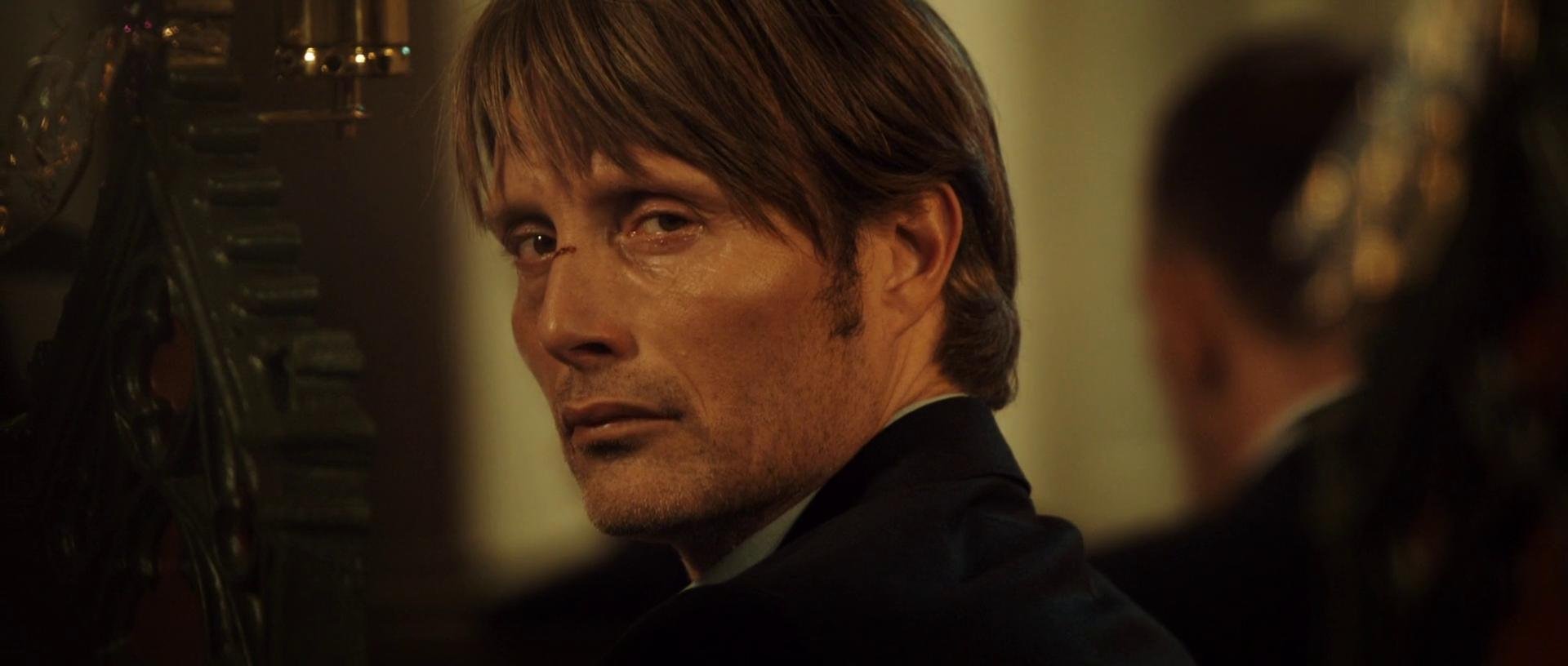Anatomy of a Fall (2023)
In the courts of 2023, men fall so women can rise.
Presentation:
Talented French director Justine Triet creates a riveting and realistic courtroom drama that makes you forget you are watching a movie. The cinematography is boring, painfully realistic and un-dramatized in cold snow and mundane clothing. When the cross examinations begin you will feel as though you are witnessing a real court case. It doesn’t have as much dramatization as A Few Good Men, but is still thrilling enough largely due to the reaching speculations of the prosecutor. One of the more nuanced whodunnit mysteries, which I think will stay in the mind long after the credits. Just like Before Sunrise, the film will have interpretations based on each viewer and whether they believe Sandra Huller’s character committed the crime or not. She does a fantastic job dancing on the lines of ambiguity. Unfortunately the film might be too slow or un-cinematic for many audiences to reach the meat of this substantial script. Although the film is largely in French, the main character’s testimony are mostly in English, making it accessible to western audiences.
Story:
The film's core conflict is whether Sandra killed her husband or whether Samuel really did commit suicide. Although she is acquitted in the outcome of the trial, it is portrayed more as there was not enough evidence to convict rather than proving her innocence. I would say the film's conclusion presents her innocence with 60 to 80% certainty, purposely giving room for ambiguity, which allow viewers to shape their own conclusion on the social commentary. This is because whether she is actually innocent greatly colors and reinforces the social commentary you decide to side with.
Let's say you think she is truly innocent. The legal system has successfully carried out justice in not convicting the wife of a suicide victim. Any commentary that the legal system is mysogynistic is undermined by the fair guardrails that have held against wrongful imprisonment. She has held her own despite the sensational media and gaslighting prosecution. She was right all along, and is indeed a talented writer and not simply a turbulent housewife. If you think she did commit the murder, then the current system has failed where feminists are capable of much more deception that we realize and can be "monsters" in lamb's clothing attemping to bring men down. Her achievements become even more questionable with jealous plundering on the table now.
There are several crucial points in this film that can greatly sway this conclusion: Did Sandra coach or influence her child when it was illegal to do so? Did she have a romantic relationship with her lawyer? Did she make up the story about the prior pills and suicide attempt because her lawyer convinced her no one would believe he would just fall? In my opinion, the writers have made the events intentionally too obscure to reach a definitive answer, which suggests that whether she is actually guilty is not the most meaningful intention of the film, but we can discuss them anyway.
There really is inconclusive evidence that she killed him. The blood spatter positioning is quite compelling, how could she overpower him in such a manner? It simply doesnt make sense that he would kill himself in such a painful manner in a timeline when he wanted to accomplish more work. So it really does look as though it was a freak accident or he intentionally jumped to make it look like his wife did it. But that is not the way someone would go about framing their wife for their own murder even if they did try to record an argument. This scenario has been conjured for suspense and drama only. The writers made him fall to his death solely to create the metaphor of men metaphorically falling or perhaps women relatively rising (this unanswered distinction is core). It is a movie that hides enough puzzle pieces because it doesn't want the events to be conclusive, but rather focused on the commentary. The social discussion and analysis is more important.
Analysis:
The film attempts to address France's sexism and other social dilemmas particularly for women. This film addresses feminism with quite a bit of modern nuance, not simply that all men are bad. What the film masterfully accomplishes is through the husband and wife dynamic. She is the more successful writer than her husband, regardless of whether she piggybacked off his work (which is also sometimes the case for men). Sandra thinks her husband is a whiny quitter that blames others for his own failures. This is a reversal of expectations one would traditionally expect as the woman is usually the housewife unable to pursue her ambitious dreams. By putting the shoe on the other foot, people on the other side of feminism can understand how many women have felt in the past, not being supported in their aspirations and neglected into family duties. This forces audiences to share feminist's perspectives on how unfair expectations have been on women. But instead of a slam dunk, the writers opt for nuance, suggesting that Samuel really is a failure and a whiner and shouldn't blame others for his lack of accomplishments. Either way, I see both interpretations as promoting the female voice regardless if it is to inspire women to take accountability. The idea of open marriages and female infidelity being normalized is also a way to remove stigmas and expectations upon women. The film never promotes her behavior, but also doesn't judge her as primitively as other traditional discourses. Her possible infidelity with the lawyer is also something to note, as their touching really does suggest romantic entanglements at the least if not corruption. She is not particularly a good person it seems, she is flawed like any other person or man. I don't think she committed the murder, but I dont think it matters as much in the end. In this film she is on trial whether she is guilty of killing her husband. Maybe she didn't kill Samuel physically, but the film suggests she likely did emotionally. I see two trials taking place, one metaphorically outside of the film in discussions like this one. Was she a good partner? Do we pursue our goals above supporting each other regardless of gender roles? Do we want men to fall so women can rise? Is this direction better for women? Instead simple minds have been distracted by low hanging fruit, words like "sexist" and "misogyny" that the writers threw into the script, fueling social justice warriors' anger toward men. Just like the child of this conflict, the current commentary on women's rights is blind toward the root of all the inequality. It is explictly suggested to the blind child (and thus indirectly to us the audience), to "choose the side we feel is right", which happened to be that the mother was innocent and the father did fall and was not pushed. Beneath all the modern squabble, this film accomplishes boosting the female perspective more than empowerment, a window into the modern world where women are capable and have as much expectations as men.
Conclusion:
This film has spurred a ton of conversation online particularly from political-leaning critics. There are clear societal questions posed especially relevant in modern France, but it never detracts from the film, offering genuinely interesting perspectives on the matters that are addressed yet unanswered. The only cringe aspects that detract from this film are the critics whom baselessly revel in how empowering this film or systemically misogynistic the system is. This film is good on its own merits not just because of a feminist position, which was actually well done. The outcome of the trial puts aside any of these distracting corruption shenanigans from true feminism. Unfortunately pseduo-intellectual critics have hijacked the discussion of this film to boost their own political ideas, grasping at straws and reinterpreting its message for their own “i told you so”. Ultimately it is up to the viewer to decide, so go watch it yourself and any social message you gain from it will depend on whether you think she is ultimately guilty. A nuanced commentary of modern times, where man has fallen so that women can rise.
Sort by
- action 80
- adventure 52
- animation 28
- biographical 39
- chinese 14
- comedy 56
- coming of age 21
- crime 84
- culinary 8
- detective 17
- documentary 7
- drama 250
- driving 7
- experimental 17
- fantasy 49
- french 10
- german 3
- heist 9
- historical 26
- horror 66
- japanese 10
- korean 11
- lgb 3
- music 17
- mystery 79
- norwegian 1
- psychological 34
- romance 48
- russian 1
- satire 16
- sci-fi 56
- spanish 6
- sports 7
- superhero 9
- suspense 23
- swedish 1
- thai 1
- thriller 137
- war 21
- western 10
- zombie 5
- 🌶 3
- 🌶🌶 31
- 🌶🌶🌶 144
- 🌶🌶🌶🌶 205
- 🌶🌶🌶🌶🌶 61






































Hollywood film noir doesn’t seem that high up anymore.